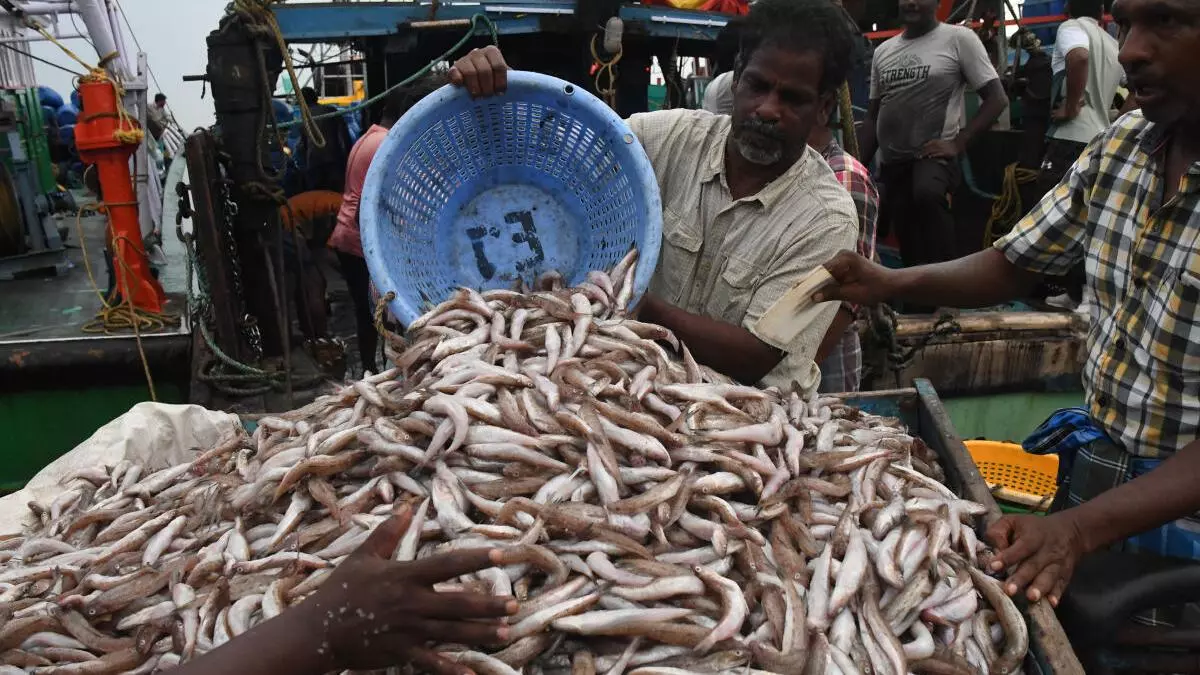Juvenile fishing continues to affect Kerala’s marine fisheries sector: CMFRI
The practice of juvenile hunting remains a major challenge in the marine fisheries sector in Kerala, according to ICAR’s Central Marine Fisheries Research Institute (CMFRI).
A CMFRI report presented at a stakeholder workshop indicated that 31 per cent of Kilimeen bream caught from the coast of Kerala last year were juveniles (below minimum legal size – MLS). The sector has incurred a loss of ₹178 crore, while juvenile fishing for Indian oil sardine has caused a loss of ₹137 crore.
The workshop, which was attended by stakeholders including representatives of fishermen, boat owners and allied workers, was organized to discuss the latest trends and issues in the state’s marine fisheries sector.
Juvenile hunting was increasingly reported during the trawling ban in 2022 versus previous years, said CMFRI TM lead scientist Najmuddin. However, the unscientific practice has been on the decline since the anti-money laundering law was implemented in the country.
Help healing
In a case study on nematode breams analyzing the impact of MLS implementation on marine fisheries in Kerala, CMFRI found that stock biomass, yield, and employment numbers for these fish increased significantly after regulations were put in place.
A significant proportion (82 per cent) of sharks, not covered by MLS regulations, caught off the coast of Kerala last year were undersized at first maturity.
According to CMFRI, the sector incurs a loss of ₹4,54,000 when fishing one ton of juvenile oil sardines. Refraining from exploiting young stocks will not only help the fishermen increase their income but also help in reviving the fish stocks.
-
Also read: Fisheries, experts call for debunking myths about use of GM crops in India’s aqua feed sector
EM Abdussamad stressed the need to include more fish under the MLS regulation and to revise the current MLS for certain types of fish. Studies and discussions are ongoing in this regard.
You need a special package
CMFRI Director A Gopalakrishnan said self-regulation and favorable climatic conditions may be the reason behind the increase in marine fish production including sardine oil in Kerala last year.
He referred to the uniform application of the MLS regulations. CMFRI had proposed this to all coastal states, but only Kerala and Karnataka stepped in to implement the same.
He said resources such as the purple-backed oceanic flying squid, the mesopelagic fish, and the atypical ribbonfish species (Trichiurus auriga) commonly seen on the southern coast, which are so far untapped, have huge fishing potential.
The stakeholders demanded that MLS regulations be implemented across the country. A special package must be provided to compensate for losses when juveniles are not hunted. They also wanted to restrict the entry of fishing boats from other states to the coast of Kerala and stop issuing licenses to new boats.
